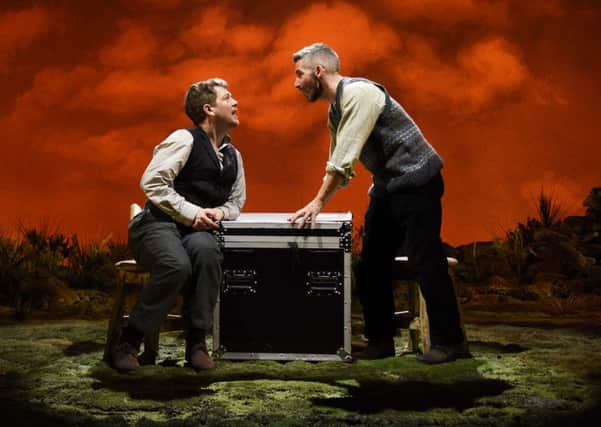Theatre review: Stones In His Pockets, King’s Theatre, Edinburgh


Stones In His Pockets, King’s Theatre, Edinburgh ****
The intimacy of the space, and the sheer brilliance of the show’s two original performers Conleth Hill and Sean Campion, made an indelible impression; and given the perfection of Marie Jones’s beautifully-crafted script – in which two middle-aged men somehow play a whole small west-of-Ireland village, plus the Hollywood film crew that has descended on it to make a big-budget movie about 19th century Irish history – they created a show that became one of the great left-field West End hits of the early 2000s, remarkable not only for its brilliant humour and ingenuity, but also for a steely political edge that lent it clarity, force, and a true sense of tragedy.
Now, 20 years on, Stones In His Pockets is still on tour; and still delivering a fine night out, for anyone who loves theatre that combines wit, compassion and intelligence with supreme dramatic skill. This current tour features Owen Sharpe and Kevin Trainor, bringing impressive commitment, if not always quite enough historical depth, both to the leading characters Jake and Charlie, and to the show’s galaxy of other roles.
Advertisement
Hide AdAdvertisement
Hide AdAnd if anything, Marie Jones’s magnificently detailed portrait of a small rural community in quiet, unnoticed crisis seems even more timely now than it did in 1999; when the pain caused by careless globalisation was less well understood than it is today, and when there might, still, have been time to redress the balance.
JOYCE MCMILLAN